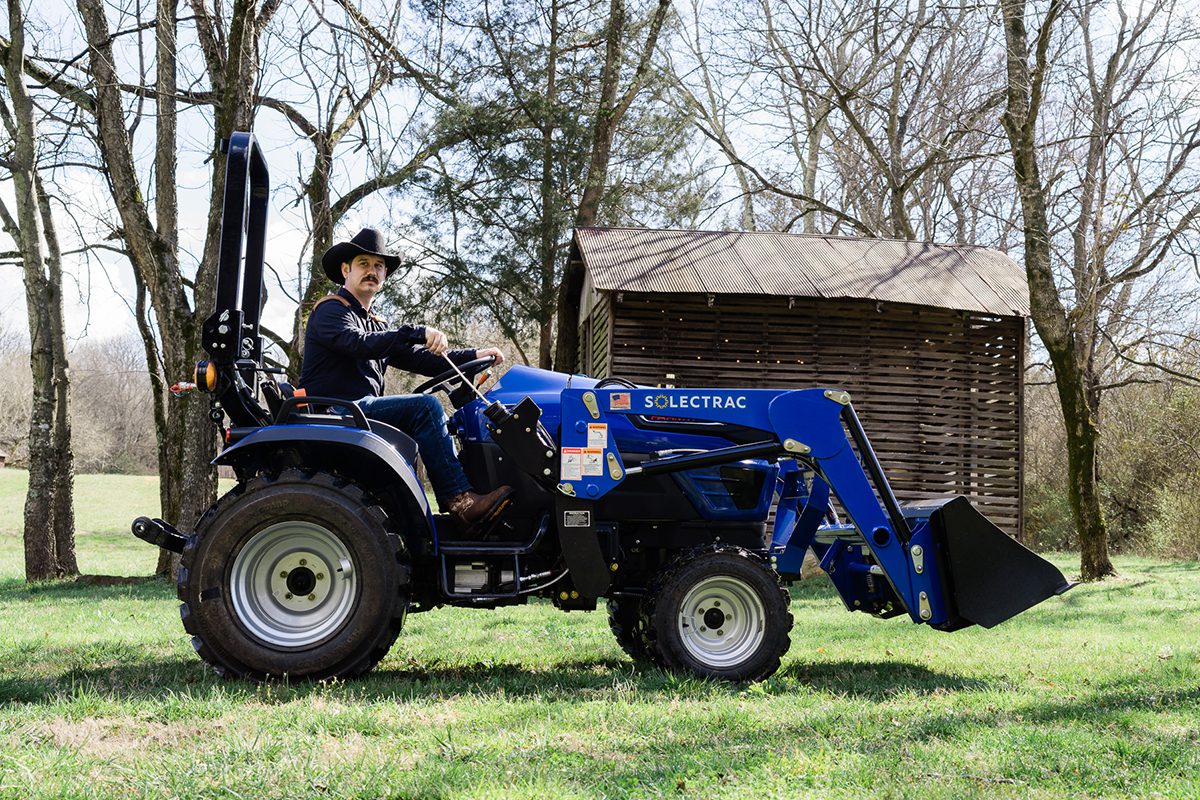The agricultural industry has a stake in almost every part of this country’s economy, from the growers to the distributors, to the grocery store chains, and down to the families that benefit from the fruits and vegetables it provides. Along this chain, there are ways in which the environment can be negatively affected by some of the processes and production milestones that take these goods from farm to table, including the transportation fuels that makes this journey possible.
The electrification of the on-road transportation sector is making its mark throughout 2022 and into the next decade. But there are lesser-known off-road applications that can also reduce emissions and create a cleaner, healthier community quickly and with less need for nationwide infrastructure development.
Steve Heckeroth, founder and now chief innovation officer of Solectrac, started developing electric tractors in the 1990s in an attempt to move away from fossil fuels and grow food using renewable energy. Fast forward to 2017, when an award from the United States-India Science & Technology Endowment Fund helped Solectrac LLC develop four different electric tractor prototypes, each with a technological advancement from the one before. Solectrac has the advantage of decades of experience with the technology that is reflected in our current models.
Healing Farmer, Community Pain Points
Fossil fuel cost is subject to significant volatility, with the current sharp rise in diesel prices due largely to the war in Ukraine and associated uncertainty about global fuel supplies. Increasing fuel costs have a negative impact on farmers’ bottom line. The current cost of charging an electric tractor from the utility grid is less than 15% of the annual diesel fuel cost. Electric tractors also cost less to operate and maintain, improving farmers’ budgets.
Electric equipment has a multitude of benefits to individual operators and workers, as well as the community in which they operate. Electrification decreases the risk of respiratory illness from exposure to exhaust. The crops are also not exposed to diesel particulates which makes them healthier to the consumer. And finally, the global community benefits from the reduction of greenhouse gas emissions, which has a positive impact on climate change.
If you use the example of a 30 HP diesel tractor that operates 400 hours annually, a diesel tractor will produce 90 tons of CO2 over its 15-year lifespan. An electric tractor charged from the utility grid produces around 10 tons over the same time. If the same electric tractor is charged by a solar array, the CO2emissions are reduced to 1 ton. If you have a solar array in your field, you can charge your tractor right where you need it, and once you pay for the solar system, that energy is free. These are significant savings that individual operators can make which will benefit us all.

Image: Solectrac
70 HP Category Narrow Electric Tractor
Funding Your Greener Choices
Moving from diesel tractors to their electric cousins can be a little hard to swallow for some farms, with cost being the biggest challenge. The cost of operating an electric tractor is offset immediately by the decrease in fuel cost, which drops about 85%. Since the electric tractor’s motor has only one moving part, the cost of maintenance is also reduced, as well as the amount of downtime.
Luckily, many states offer rebates for the purchase of renewable energy and electric machinery. These incentives vary from state to state. For example, the California Air Resources Board offers incentives that pay for a significant amount of the cost of new equipment when old diesel equipment is scrapped and replaced with zero-emission machinery.
Let’s Do This Together
We are a company interested in doing business as a force for good, financially, socially, and environmentally. Electric tractors are the future of farming, just as electric cars are the future of transportation. As we establish ourselves in the North American market, we are also looking to the developing world where our technology can leapfrog the fossil fuel infrastructure all together and foster farming practices charged by renewable energy. We are excited about the tremendous possibilities to affect change in agriculture and utility operations, and we have the team and tenacity to make it happen.
Visit our website for more information on the e25 Compact Electric Tractor or e70N Narrow Electric Tractor.


